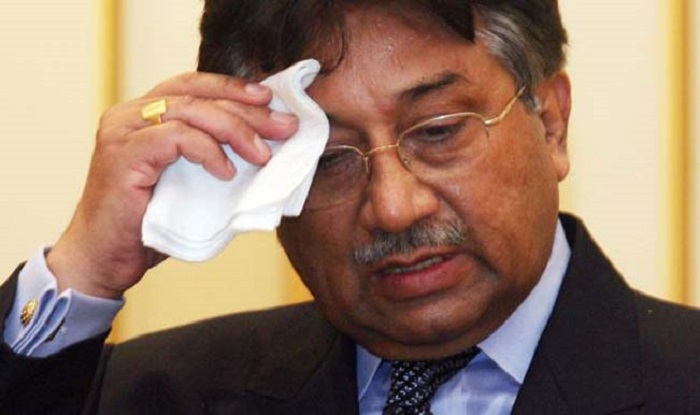Here’s something I wrote on Musharraf for The Economic Times
Pakistan’s former president and army chief Pervez Musharraf has been indicted by court in the Benazir Bhutto murder case on three charges of murder, conspiracy to murder and facilitation of murder.
Predictably, Musharraf has denied all these charges. This is a major shift in Pakistani politics, which has been dominated by generals, their invincibility and utter lack of accountability.
Earlier dictators such as Field Marshal Ayub Khan, General Yahya Khan and General Zia ul Haq, who arguably did much more damage to the country, enjoyed an unstated immunity.
Zia died in a plane crash but Ayub and Yahya were never questioned or summoned by the courts.
It is to the credit of Pakistan’s democratisation, its relatively free media and an assertive judiciary that an otherwise untouchable army chief is being held accountable for not just Benazir’s murder.
Musharraf has also been implicated in Baloch leader Nawab Akbar Bugti’s murder in a military operation, the operation against the terrorists in Red Mosque, and more importantly for suspending the constitution in 2007. The list is long and the mood of judiciary and public opinion rather unforgiving.
Musharraf was advised not to return to Pakistan but he did not pay heed to this advice and insisted on coming back and joining politics. He was rendered disqualified to contest the elections and has been under house arrest for months now.
A peculiar alignment of anti-Musharraf sentiment pervades Pakistan’s public opinion. Prime Minister Nawaz Sharif was a key victim of Musharraf and military junta’s ire in 1999.
During the course of his rule, Musharraf also alienated the usual allies of the military – i.e. the Islamists against whom he conducted operations and also suspended the jihad against India industry.
A few years later, he also ran into a lethal conflict with the judiciary, which culminated in the dismissal of the incumbent chief justice in March 2007.
By the end of 2007, Musharraf had to give up his uniform, face his bitter opponents Benazir and Sharif in the political arena and also deal with a robust civic movement in support of the judges. His crackdown on media also ruptured his otherwise comfortable relationship with the electronic media.
Benazir’s assassination in December 2007 practically ended his chances of remaining in power. In fact, Musharraf’s statements after her murder was neither sensitive nor prudent and he lost whatever public credibility he had built.
Courts Too Under Trial
The current trial, hopefully, will bring more facts and insights into the public domain. Benazir’s murder was not an ordinary event.
It was a huge blow to the idea of a plural and moderate Pakistan as she was perhaps the only leader who had the courage to stand up against extremists and rally public opinion against the jihad industry. A UN commission insinuated that Pakistan’s powerful military intelligence had some role in the postmurder elimination of evidence on site. An inquiry was ordered, which gave a clean chit. Police officers and district administration officials were initially suspended but later resumed jobs right under the nose of the PPP government.
Trying a former army chief is not a routine development in Pakistan. It denotes the beginning of a new chapter in its history as well as the increased space for civilian forces in the country.
It is not clear how the military-intelligence complex views this development. But it is time there are no sacred cows in Pakistan. The courts are also under trial.
They must not personalise this case as Musharraf was not the only one wielding power in Pakistan at that time. The non-state actors and their handlers must also be brought to the courtrooms and exposed for Pakistan’s fragile democracy to work as a long-term governance paradigm.



